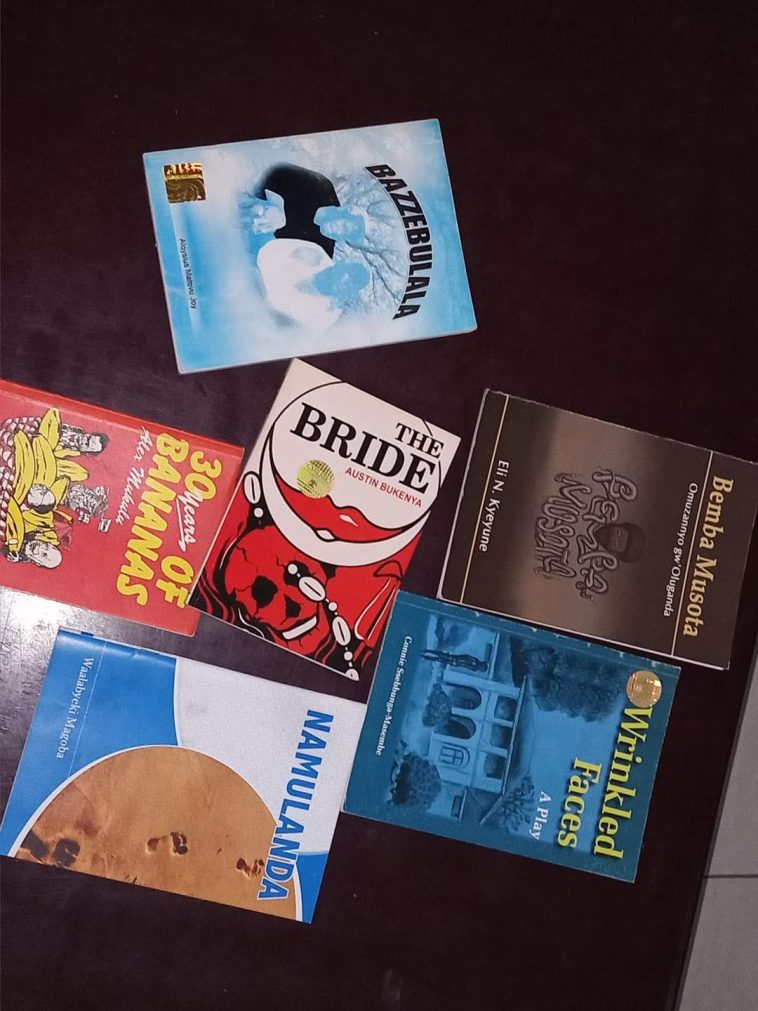How pertinent is it to read local authors? I have read so many international authors whilst growing up – during the many classes I have attended, the most outstanding thing I have witnessed is the constant referencing of writers that are not Ugandan. The teachers are ignorant about the presence of writers in their own country, they are most fluent in authors that describe foreign names and place. They then ridicule the available literature as being of poor standards and unworthy of their attention. True, some Ugandan books need strong reviews about how poor and shallow they are, the authors need truth to progress. However, on reading my 30 titles that are Ugandan, I have learned a lot as a reader. There is beauty in imperfection; the poorly written books also serve as lessons. Thus, I must assert to anyone reading this article that Ugandans are truly talented people, they only lack a platform/pulpit/space to which they can be recognized. For I have learned with time that whosoever wants literature like novels, plays in East Africa runs to Kenya, even Ugandan writers that want to kick start their careers in writing run to Kenya where there is a bigger readership of Kenyan literature or local content. Why this? We readers in Uganda need to criticize this (our) literature by being able to purchase that content – for I have learned that no one has a right to criticize if never purchased. We should learn to be patriotic through purchasing local commodities. That is how we develop a community that is sustainable financially. With pride, I write that I have been able to read eight novels, six plays, ten poetry collections and six nonfictional content like biographies, academic research books:
The history that defines us as individuals, where we come from, and how we deal with the current debates of who is right about the tribal histories. In the mythology of our past, present and the future, Eli N. Kyeyune dramatizes a very important history. That is “Bemba Musota” published in 1985 by Fountain Publishers, narrates an important piece of history about the transition of the Buganda Kingdom to the current lineage of Kato Kintu. The most important pick I got from this Luganda play is the ability of Eli to narrate to us how Kato Kintu managed to oust Bemba Musota. The play is a treasure to behold and testament for the Baganda that seek to understand a bit of that lost history through the lens of drama. It is incumbent to note that this play is based on the lore of the Baganda and their oratory about their pantheons they intercede through. I would wish to juxtapose the reality we face these days. That intercession through pantheons that are local is evil but intercession through foreign saints is godly and illuminative. However, Eli with his masterpiece reminds us that there is no difference between them. Both the pantheons and saints are not different. They both listen to us and help us through our journey in life. Thus, this play is a mock and praiseworthy to us all. A discipline that teaches us all to embrace where we come from. This is a beautiful drama, and I appreciate how beautifully Eli managed to gather our lost history into a masterpiece. A reverence to us all.
My father is a fundamental cheerleader in my life when it comes to supporting my hustle of writing. We were seated in his car and talking about the politics of Uganda through the lens of drama. He then decided to recommend to me Alex Mukulu’s political drama called “30 years OF BANANAS” published by Oxford University Press in 1993. This play is a reflective political history of our Uganda. The drama is a mirror on our journey for the thirty years of different political leaders like Apollo Milton Obote, Idi Amin Dada, Edward Muteesa II, etc. Alex reflects on the evil of different leaders in the eyes of a third party – a Rwandan immigrant. He then concludes by talking about the current leader of this nation Uganda. He believed that the eyes were on him to see a better country. However, it is passed 30 years ever since this play was staged. Did Uganda change for better? That is how reflective the play is. It talks about the different evils done by different leaders in the past but again we are witnessing the repeat in history. Nothing has changed on progressed. This is a wonderful political play/drama. It is a joy but I still think this play was supposed to be completely in Luganda. For whilst reading, I playwright might have gotten lost on different accounts about proper usage of the English. His submission was more of “Uglish”. Another observation I witnessed around this play was how cheap I bought it. It was just one dollar and a few cents. I inquired why the play was this cheap and I was told the author wanted all copies done with. It is painful to see how cheap our books become when we fail to find buyers. If this kind of sorrow, affects even legends in the system. What about the young just joining the trade?
Of legends of the stage, one important name never misses – Aloysius Matovu Joy. I grew up watching him on stage with his friends like Charles Ssenkubuge Siyaasa. However, the discipline at which Matovu writes his art must be studied carefully. For employs tension throughout the book. I bought this book/play called “Bazzebulala”. A Luganda play that comprehensively talks about land-feuds amongst people. The most devastating thing about land disputes/feuds is that, many times we witness gluttons that murderous. Students of Pride Academy first staged this play in 1996. It is a beautiful and lively play on stage. I read the play with respect. For it is a complete beauty to witness. My only concern with it was usage of bookshop to publish it. I still think we should maintain the role of publication to publishing houses not bookshops. There was poor ink and typesetting for the play. The content was nice to read but the basics were poor to see. Perhaps, if possible Matovu should reach out to Fountain Publishers for a better edition. It would look wonderful seeing this play reprinted by professional publishers with experience of Ugandan content. However, everything was superb. There were lessons learned and taken. It is good to write about legends of the theatre. I feel honored and elated to do this. It is a pleasure on my side.
Waalabyeki Magoba is one of the most respected writers we have in Uganda. This is because every week you will see a new book from Magoba. I think Magoba has written about 40 titles – both adult and children titles. It is very good to witness such a talent and to write about it. I bought Namulanda at book fare. This is a Luganda play with real hard diction of Luganda. The author himself autographed the copy for me: “Weebale obuwagizi, ssebo// 30.9.2023”. This was my first time meeting him, and I was elated and proud already. This play is also about greed amongst individuals. The hatred that comes after someone accumulating a lot of wealth for himself or herself. Namulanda a play published (self-published) in 2012 by the author teaches us about the matrimonial greed by different parents. Parents that sell their children to the highest bidder and hardly care about their children’s feelings. Namulanda is a lesson that must shelved in all cultural homes. All parents must read this play. Greed leads to death if caught. The play is so beautiful filled with betrayal, plotting against one another, and how different authorities handled crime against the crown in the retro.
It is to be noted that that Austin Lwanga Bukenya alias Mwalimu is a powerful literary critic of two generations. The generation of twentieth century was competitive and highly illuminative about different debates like culture and politics. Thus, with Austin Bukenya’s The Bride was published by East African Educational Publishers in 1987 works as an argument to understand the cultures and how dynamic it can get. In the twenty first century, Mwalimu is a teacher to the young generation about how to write good work. This play/drama is a good school play for all children studying Literature in English. It has many lessons learned and taught. I bought this play out of curiosity. I was busy writing the sequel to The Muchwezi, The Flower and The Suitor and I needed new drama to read. So entered bookshops and found his play amongst the many I could use to understand better drama, and I have no regrets on complaints. It is good piece.
The most comical drama I have read this year is “Wrinkled Faces” a play by Connie Ssebbunga-Masembe. Fountain Publishers published this play in 2010. I loved this drama. There were lessons picked from this play. Imagine leaving your wife and child home in abject poverty and try your luck of survival outside your poor country but you never reach that goal you claimed. You then come back poorer than before, get imprisoned and begin stealing on the village. This is the actual plight of our time; people leave Uganda for greener pastures. They want to change their lives. They sell even the tiniest property in their lives with hope that they will make it but alas. I loved how Connie managed to keep me on, flipping pages looking for answers and scratching my head in return. This is a good book. Practically well written and realistic to the Ugandan context.
In the end, people say drama is no longer trending. However, it is important to note that drama is still in theatre and on paper. Drama is taking shape and evolving. With time, we shall new good things that are innovative. Don’t give up just yet on this genre.
This post was created with our nice and easy submission form. Create your post!





